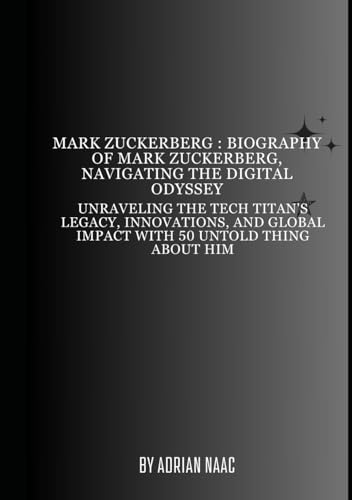Zuckerberg's Next Chapter: Navigating The Trump Presidency

Table of Contents
The Rise of Misinformation and Fake News
The Trump presidency coincided with an explosion of fake news and misinformation on Facebook, significantly impacting the 2016 and 2020 US elections. The platform's algorithms, designed to maximize engagement, inadvertently amplified misleading content, creating an echo chamber effect and contributing to political polarization. This wasn't just about individual posts; coordinated disinformation campaigns became a major concern.
- The Cambridge Analytica scandal: This exposed how user data was harvested and used to target voters with manipulative political advertising, significantly eroding public trust in Facebook's data security practices and raising concerns about election interference.
- Algorithmic bias: Facebook's algorithms, while not intentionally biased, were shown to disproportionately amplify sensational and emotionally charged content, often including fake news articles and conspiracy theories.
- Combating fake news: Facebook implemented various measures, such as partnering with fact-checking organizations and adjusting its algorithms to downrank misleading content. However, these efforts proved controversial and often insufficient to stem the tide of disinformation.
- Criticisms and limitations: Critics argued that Facebook's efforts were too little, too late, and that the platform's business model – prioritizing engagement over accuracy – inherently incentivized the spread of misinformation. The effectiveness of these measures remains a subject of ongoing debate.
Political Advertising and Campaign Influence
Targeted political advertising on Facebook during the Trump era became a focal point of concern. The ability to micro-target voters with personalized messages, often based on sensitive personal data, raised serious questions about the transparency and fairness of the electoral process.
- Transparency of political ads: The lack of transparency surrounding the funding and targeting of political ads on Facebook sparked intense debate. Critics argued that this lack of transparency allowed for covert influence campaigns and made it difficult to track the source of disinformation.
- Micro-targeting and manipulation: The ability to micro-target specific demographics with tailored messages raised concerns about manipulation and the potential for exacerbating existing societal divisions. This tactic allowed campaigns to tailor their messaging to resonate with particular groups, potentially swaying elections in unforeseen ways.
- Evolving Facebook policies: Facebook implemented new policies regarding political advertising, including increased transparency requirements and stricter rules for verifying advertisers. However, the effectiveness of these policies remains debated.
- Regulation of political advertising: The Trump presidency saw intensified calls for increased regulation of political advertising on social media platforms. The ongoing debate centers around balancing free speech with the need to prevent manipulation and ensure fair elections.
Section 230 and the Fight for Regulatory Reform
Section 230 of the Communications Decency Act, which protects online platforms from liability for user-generated content, became a central battleground during the Trump presidency. The debate focused on whether platforms like Facebook should be held responsible for the content shared on their sites.
- Arguments for and against reforming Section 230: Supporters argued that Section 230 protects free speech and innovation online. Opponents contended that it shields platforms from accountability for harmful content, such as misinformation and hate speech.
- Impact on content moderation: Section 230 significantly impacts Facebook's content moderation policies, influencing its approach to removing or flagging problematic content. Changes to Section 230 would likely force major shifts in how platforms handle user-generated content.
- Zuckerberg's testimony and statements: Zuckerberg testified before Congress multiple times, addressing concerns about Section 230 and Facebook's role in spreading misinformation. His stance evolved over time, reflecting the increasing pressure on the platform.
- Ongoing legal and political battles: The legal and political battles surrounding Section 230 continue to this day, with significant implications for the future of online content moderation and social media regulation.
Data Privacy and User Trust
The Trump era presented significant challenges to Facebook regarding data privacy and user trust, particularly in the aftermath of the Cambridge Analytica scandal. This scandal highlighted the vulnerability of user data and the potential for misuse by third parties.
- Impact of GDPR and CCPA: The implementation of the General Data Protection Regulation (GDPR) in Europe and the California Consumer Privacy Act (CCPA) in the US forced Facebook to adapt its data practices to meet stricter privacy standards.
- Efforts to improve data security: Facebook invested in improving its data security measures and implemented new privacy controls to give users more control over their data.
- Public perception: Despite these efforts, public perception of Facebook's commitment to data privacy remained deeply skeptical throughout the Trump presidency, significantly impacting user trust.
Conclusion
The Trump presidency represented a watershed moment for Mark Zuckerberg and Facebook. The platform's role in the spread of misinformation, the influence of targeted political advertising, and the ongoing debates surrounding Section 230 and data privacy fundamentally reshaped the social media landscape. Zuckerberg's navigation of these turbulent years has left an indelible mark on Facebook's future. Understanding Zuckerberg's actions during this critical period is vital for navigating the evolving complexities of social media. Continue exploring the impact of the Trump presidency on Facebook and its future implications by researching further into Zuckerberg's ongoing efforts to address these critical issues related to Facebook's influence and the ongoing debate surrounding social media regulation.

Featured Posts
-
 Aaron Judges 3 Hrs Lead Yankees To 9 Homer Game In 2025
Apr 23, 2025
Aaron Judges 3 Hrs Lead Yankees To 9 Homer Game In 2025
Apr 23, 2025 -
 Lumina Gold Sold To Chinas Cmoc For 581 Million Analysis Of The Transaction
Apr 23, 2025
Lumina Gold Sold To Chinas Cmoc For 581 Million Analysis Of The Transaction
Apr 23, 2025 -
 Reports Of Leaks Hegseth Highlights Potential Sabotage Of Trumps Platform
Apr 23, 2025
Reports Of Leaks Hegseth Highlights Potential Sabotage Of Trumps Platform
Apr 23, 2025 -
 Brewers Postseason Hopes Addressing Early Season Weaknesses
Apr 23, 2025
Brewers Postseason Hopes Addressing Early Season Weaknesses
Apr 23, 2025 -
 Infotel Et Sa Valeur Ajoutee Un Succes Client Du 17 02
Apr 23, 2025
Infotel Et Sa Valeur Ajoutee Un Succes Client Du 17 02
Apr 23, 2025
